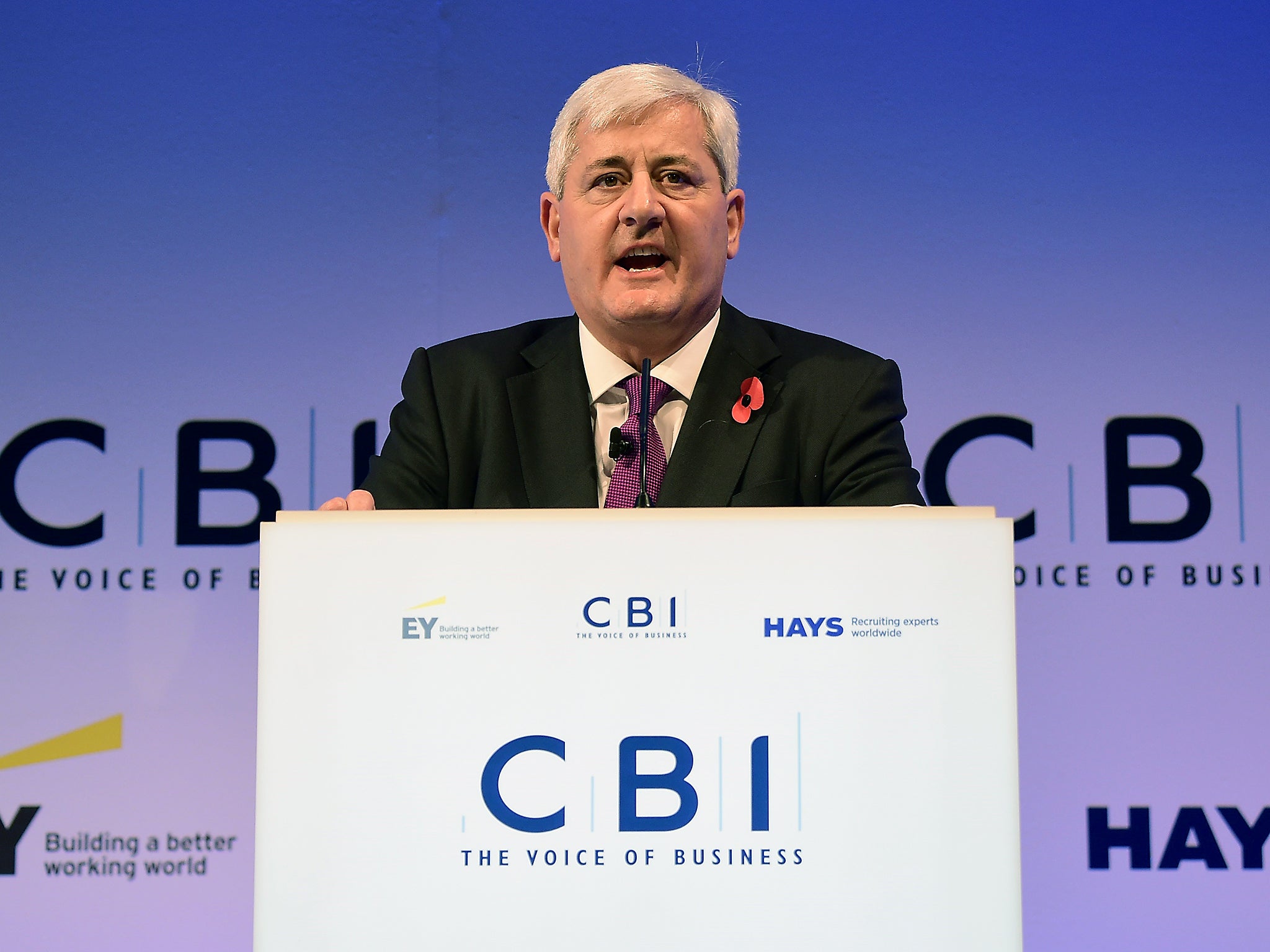Labour's nationalisation plans as dangerous as hard Brexit, warns CBI president
Paul Drechsler claims Labour's plans to renationalise rail, water, train services and PFI contracts would deter much-needed private investment

Labour’s nationalisation agenda is as serious a threat to the economy as a hard Brexit, according to the Confederation of British Industry president.
Jeremy Cobyn’s party campaigned on a general election manifesto last year to renationalise the water, rail, energy and postal services.
And the Shadow Chancellor, John McDonnell, has also since pledged to bring controversial private finance initiative (PFI) deals back “in house” if Labour comes to power.
But Paul Drechsler, in a speech to business leaders in London, dismissed this nationalisation programme as “ideology” and warned it is liable to deter much-needed private investment.
“So you want to nationalise energy, rail and water, and bring public services contracts back in-house? Let’s see the evidence that it will deliver a better service to consumers at a lower cost,” Mr Drechsler said.
The CBI’s criticism will come as a blow to Labour, coming after the traditionally Tory-friendly business lobby group praised the party for its recent commitment to remaining in a customs union after Brexit.
To the alarm of many exporting UK firms, Theresa May’s Government has rejected any suggestion of staying in the customs union in the long term.
“Now, there are things we can agree on with Labour. Including their backing of the CBI’s customs union proposal. But their policies on nationalisation aren’t driven by evidence. They’re driven by ideology,” said Mr Drechsler.
The CBI president, who is also chair of the privately owned Bibby Line Group, said that Labour’s “nationalising ideology” was a “significant threat” alongside the “real risk of a hard Brexit”.
“Now, some are saying: ‘don’t worry, it’s not going to happen’. ‘We’ll get a Brexit deal. And no one’s going to be taking private assets into state hands.’ That may be. I don’t make predictions. Not when it comes to politics! But the first lesson in business is, confidence is everything. And every day, I’m hearing of potential investors in this country reaching for their coats,” he said.
“Because they’re not going to risk putting their money into an economy that soon might face export barriers to its single biggest market. Let alone invest in companies, assets and services that could soon be taken over by the state.”
Opinion polls have consistently shown high public support for renationalisation of utilities such as rail services, water and energy.
And the recent collapse of Carillion, a major holder of PFI contracts, leaving the Government to pick them up, has further turned public opinion against the private provision of public services.
Yet Mr Drechsler defended the broad record of privatised industries, claiming private energy companies had helped cut the UK’s carbon emissions, private water companies had successfully reduced leaks and passenger numbers had grown in the post-1994 era of privatised rail operating companies.
On the Carillion fallout, Mr Drechsler pleaded for “perspective”.
“Most public-private partnerships work well,” he said.
“Over 200,000 companies deliver contracts for the public sector. They can – and do – accelerate investment in communities at a time when public services are under pressure. Whether it’s new ways to care for elderly people, new schools, or upgrading our infrastructure. And they can do so efficiently.”
Mr Drechsler warned last March that hard Brexit would open a “Pandora’s box” of terrible consequences for UK businesses. And in December he warned that the stalled EU negotiations meant that “Rome is burning” for companies here.
Join our commenting forum
Join thought-provoking conversations, follow other Independent readers and see their replies
Comments